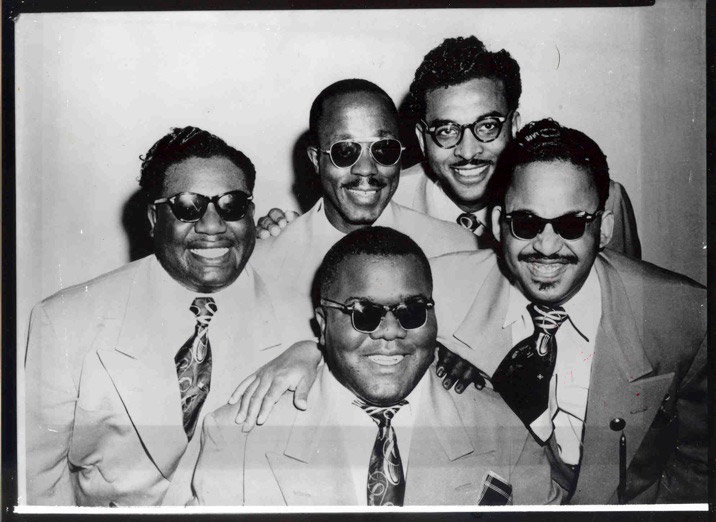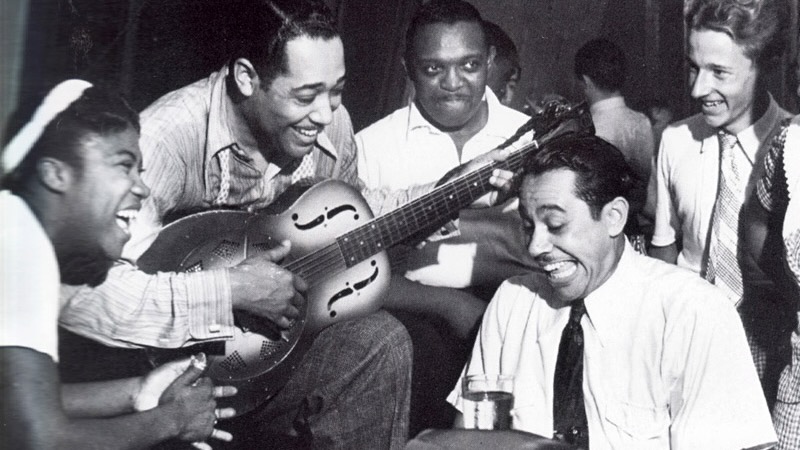Last Updated on February 1, 2022, 7:26 PM | Published: February 1, 2022
OKLAHOMA CITY (Free Press) — It’s impossible to talk about American music without talking about gospel.
The music that originated inside African American Christian churches, that was born and grown and developed for decades among laboring slaves singing hymnals and spirituals to communicate their plans and their sorrows, became the foundation for all future American music. Jazz, blues, rock and roll, and all rap are all easily traced back to those same origins, and some of the greatest legends and biggest stars of those pop genres may have just been directly repurposing gospel music for the secular masses.
This is the basis for the Magnolia Pictures documentary “Rejoice & Shout,” playing February 6th at Oklahoma City Museum of Art’s Noble Theater to help celebrate Black History Month, and to appropriately spotlight the magnificent artists and singers that now go largely ignored outside the religious world.
Though the lyrical content of the music presented, and indeed the entire premise of the film itself, is firmly and openly religious, you don’t need to be at all spiritual yourself to appreciate the beauty of the songs throughout or the staggering talent and skill on display from the countless singers featured. The unbridled emotion and intensity in the voices is infectious and beyond impressive.
Luckily, much of the documentary’s two-hour runtime is dedicated to nearly complete performances of songs by the greatest names of gospel music history.

If you’ve never sat to watch the power and harmony of The Five Blind Boys of Mississippi or the raw, unequaled talent of all-time great Mahalia Jackson, then this film is a perfect opportunity to do so (especially with the Noble Theater’s sound system.) Likewise for the inimitable Sister Rosetta Tharpe, whose energy and passion both in her voice and on the electric guitar inarguably helped to create rock and roll (though the film woefully spotlights her without showing much of her rousing, groundbreaking guitar playing.)
It’s easy to think that there is, or at least should be, a wall between the worlds of religious and secular music, but that’s never been the case in America, and has especially not been in recent years.
Sure, it’s obvious that modern country music has its feet firmly planted in Evangelical Christianity, and soul and R&B artists have never been shy about their gospel influence, but have you ever noticed how important the traditional gospel style is even to Indie Rock? Britpop heroes Blur aped gospel stylings to beautiful effect on their modern classic “Tender,” and Bon Iver’s experimental blockbuster “22, A Million” even opens with a Mahalia Jackson sample.
The influence is everywhere, secular or not, and “Rejoice & Shout” does a great job of explaining why, and of digging into the elements of the music and the singers that continue to resonate so deeply even among the decidedly non-religious.
The interviews and interstitial segments throughout the film are largely straightforward, providing context and due reverence for the phenomenal performance footage, but it’s the historical and archival pieces that feel particularly important. Seeing real, firsthand footage from the Great Mississippi Flood of 1927, for example, adds a deeper understanding of the levels of hardship that spawned these musical outpourings of faith through the early parts of the 20th Century, and unfortunately shows how little circumstances have changed for those in poverty even today.
OKCMOA is presenting the film, appropriately, on a Sunday afternoon, and Magnolia Pictures themselves have provided a 35 mm print of the film that promises to show off the clearest and most vibrant look imaginable for the documentary’s treasure trove of classic footage.
“Rejoice & Shout” screens Sunday, February 6th at OKCMOA’s Noble Theater. For schedule, tickets, and information, visit okcmoa.com.
And … this!
The Noble Theater at OKCMOA continues their Black History Month lineup with “I Am Not Your Negro” on February 12th and “Toni Morrison: The Pieces I Am” on February 18th.
An Academy Award nominee in 2017, “I Am Not Your Negro” uses the unfinished novel “Remember This House” by the incomparable and singular James Baldwin to provide a poetic and heartbreaking perspective for the ongoing struggles of race relations and civil rights today.
2019’s “Toni Morrison: The Pieces I Am” examines the life and work of the renowned African-American novelist, including what would become some of her final interviews and observations.
Visit okcmoa.com for tickets and information.
Brett Fieldcamp has been covering arts, entertainment, news, housing, and culture in Oklahoma for nearly 15 years, writing for several local and state publications. He’s also a musician and songwriter and holds a certification as Specialist of Spirits from The Society of Wine Educators.











